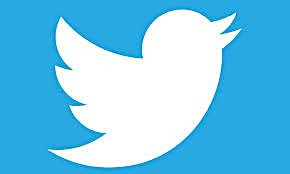Why the Coke Ad is Good for America
 Sunday, February 16, 2014 at 7:12PM
Sunday, February 16, 2014 at 7:12PM The ad was as sicky sweet and schmaltzy as the drink itself. The commercial for Coca Cola where young people sing “America the Beautiful” in nine different languages first aired a couple weeks ago during the Super Bowl and then replayed in a longer version during the Olympics Opening Ceremony.
It’s been years since I drank a Coke, but the ad almost made me gag as much as that crude oil-like high fructose corn syrup does. I didn’t even want to think about the damage the drink would do to the teeth, stomachs and weight of those adorable singers. Or how this ad was going to cause similar damage to the body politic.
Because the outrage was so predictable: “Un-American!” “Boycott Coke!” were the immediate trending tweets and Fox diatribes. Glen Beck said the ad was intentionally “divisive,” and black former Congressmember Allen West said it showed “we are on the road to perdition.” “Speak English or go home!”
Trouble is, of course, that these folks can’t go home: America is home for all the young and old who sang the lovely, very religious song in English, Spanish, Tagalog, Mandarin, Hindi, Hebrew, Keres (a native American language), French and Arabic. (Several news sources said eight languages, as if only the non-English versions counted as “languages.”)
As Jon Stewart said on the Daily Show, “How American can they be? They’re singing America the Beautiful while drinking Coca Cola!” Then he went on in a typical delightful rant: “Maybe they’d be more American if they were openly carrying a gun shaped like Jesus while using a bald eagle strap-on to fuck an apple pie, for God’s sake.”
So thanks, Coke, for reminding us what idiots so many conservative Fox News-loving Americans are. We know they’re out there, but it’s good every once in a while to see how really childish and knee jerk stupid they are, so predictable and shallow, so desperately clinging to a past that never existed. Those shrinking and shriveled older generations of fearful white rural farmers may switch to Pepsi, but the growing diverse younger citizens will only laugh.
And of course, sadly, they will keep drinking that shit. Companies don’t pay $4 million for a 30 second Super Bowl ad if they don’t think it will increase sales. (And this was a really good ad, because you could tell in about 5 seconds what the product was, and you remembered it afterwards. Such ads are so rare these days.)
And as my fellow citizens keep drinking this crap, and I (happily) help pay for universal health insurance, I worry more about the damage done by sugary drinks to our bodies than to our nation’s mythic Valhalla. All that saccharine poison (Americans drink 2 cans of soda every day) adds extra pounds, rots teeth and contributes to osteoporosis, reduced bone density. That’s the real threat to America, old fat people with no teeth and broken hips.
But I say the ad is good for America? Well for the above reasons; it showed how stupid and shallow English-only conservative crackpots are. And it helped us laugh a little – thanks, Jon.
But I must admit I also think it might actually have done some good education and inspiration about what American really does look like these days. Americans speak hundreds of languages, not just those nine. The majority of Americans are young and female, more and more non-white, unlike what you see on the evening news or the halls of Congress.
So simply for those diverse folks to see faces like their own on TV – that’s a good thing.
 Lt. Uhura Chief Communications Officer, USS EnterpriseI was reminded of the story of Lt. Uhura of Star Trek and Rev. Martin Luther King, Jr.
Lt. Uhura Chief Communications Officer, USS EnterpriseI was reminded of the story of Lt. Uhura of Star Trek and Rev. Martin Luther King, Jr.
Cast your minds back to 1968 when African American actor Nichelle Nichols played the fourth in command of the Starship Enterprise on the original TV series Star Trek. She was considering leaving the series after one season because she wanted to go back to her true love, Broadway theater. Here’s how she described it to National Public Radio a couple years ago:
I went in to tell Gene Roddenberry that I was leaving after the first season, and he was very upset about it. And he said, take the weekend and think about what I am trying to achieve here in this show. You're an integral part and very important to it. And so I said, yes, I would. And that - on Saturday night, I went to an NACCP fundraiser, I believe it was, in Beverly Hills. And one of the promoters came over to me and said, Ms. Nichols, there's someone who would like to meet you. He says he is your greatest fan.
And I'm thinking a Trekker, you know. And I turn, and before I could get up, I looked across the way and there was the face of Dr. Martin Luther King smiling at me and walking towards me. And he started laughing. By the time he reached me, he said, yes, Ms. Nichols, I am your greatest fan. I am that Trekkie.
And I was speechless. He complimented me on the manner in which I'd created the character. I thanked him, and I think I said something like, Dr. King, I wish I could be out there marching with you. He said, no, no, no. No, you don't understand. We don't need you on the - to march. You are marching. You are reflecting what we are fighting for. So, I said to him, thank you so much. And I'm going to miss my co-stars.
And his face got very, very serious. And he said, what are you talking about? And I said, well, I told Gene just yesterday that I'm going to leave the show after the first year because I've been offered - and he stopped me and said: You cannot do that. And I was stunned. He said, don't you understand what this man has achieved? For the first time, we are being seen the world over as we should be seen. He says, do you understand that this is the only show that my wife Coretta and I will allow our little children to stay up and watch. I was speechless.
Later in the interview Nichols says that Whoopi Goldberg told her she watched Star Trek as a nine year old just to watch Lt. Uhura. “She told me she turned on the TV and saw me and went running through the house screaming: Come quick, come quick. There’s a black lady on TV and she ain’t no maid.”
Kids of all races and ethnicities see folks who look like them a lot more today on TV than they did in 1968, but we’ve still got a long way to go. Some future Rev. King might have seen that Coke commercial and heard America the Beautiful in their own language and gotten a tiny bit more self esteem.
That’s good for America.
Copyright © 2014 Deborah Streeter
















